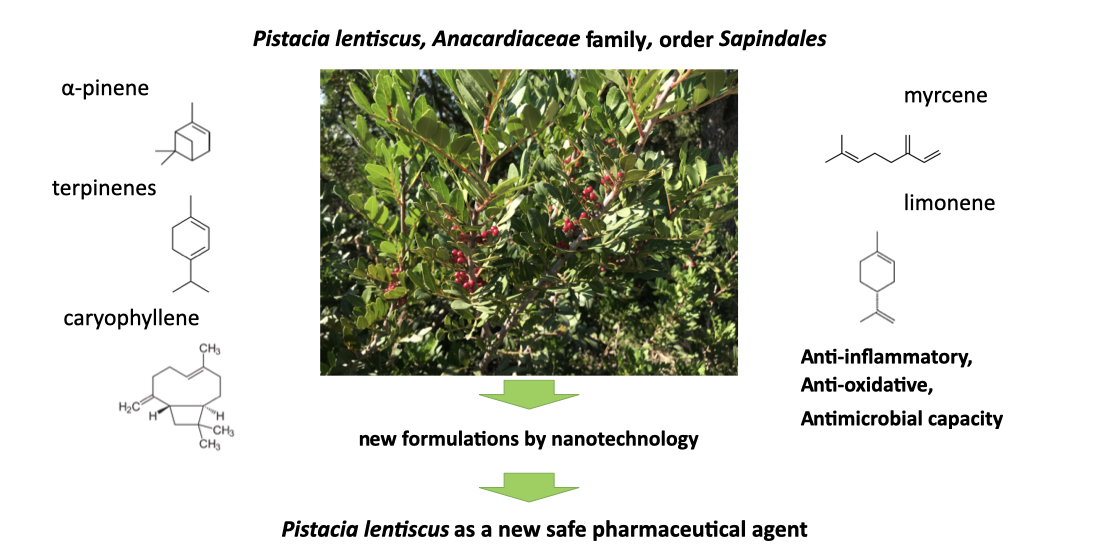There is an increasing interest in revisiting plants for drug discovery proving scientifically their role as remedies. Pistacia lentiscus (PL) is a wild-growing shrub rich in terpenoids, which are pharmacological appealing. The more recurrent components in the oil are represented by α-pinene, terpinene, caryophyllene, limonene, and myrcene. High concentration of polyphenols enriches the extracts. PL-extracts showed in vitro and in animal model strong anti-inflammatory and anti-oxidative activities. The anti-inflammatory activity mainly occurs due to inhibition of NF-kB pathway or directly toward the proinflammatory cytokines, or arachidonic acid cascade against COX-2 and LOX. The antimicrobial activity of PL essential oil and extracts includes among others Staphylococcus aureus, Escherichia coli, periodontal bacteria and Candida sp.. In conclusion, the biological properties, and particularly the anti-inflammatory and anti-microbial capacity, propose PL as a new safe pharmaceutical agent.

